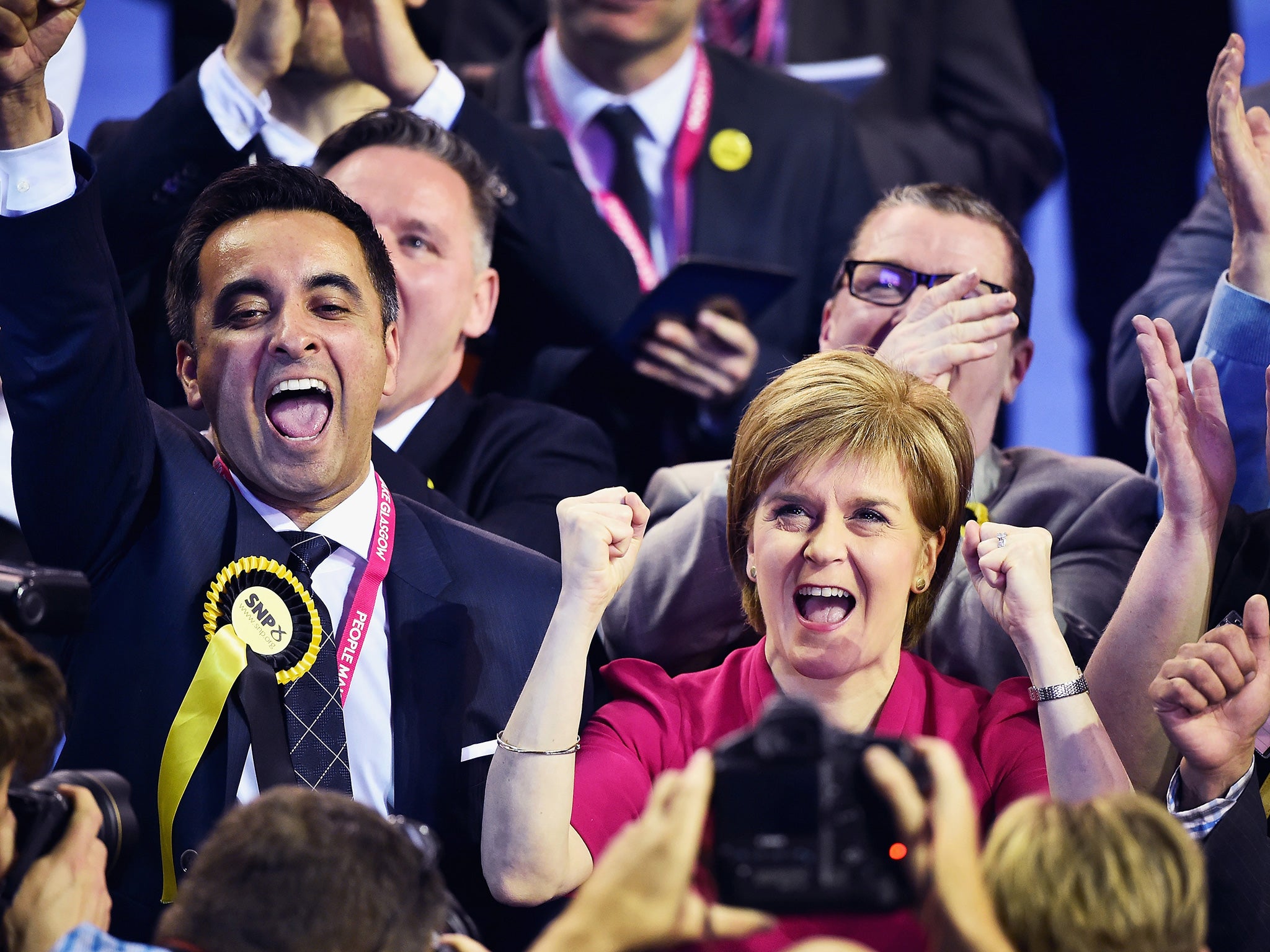If Downing Street tries to bully the SNP it will only succeed in breaking the Union
Putting its responsibilities to Scotland first and Westminster second is part of the nationalists’ DNA

Speaking to a packed lecture theatre in Glasgow University not long ago, Gordon Brown tried to dismiss Scotland’s love affair with the SNP as merely part of the “ebb and flow of political nationalism”. Brown – despite being in his favourite part of the world – nevertheless struggled to offer a definitive answer to the key question his ruined party must address: why is the union being rejected now?
Perhaps, as Brown suggested, Scotland has been here before. Dr Robert McIntyre gave the SNP its first MP in 1945 when it won more than 50 per cent of the vote in a by-election fight with Labour. Winnie Ewing took Hamilton in 1967; the SNP won 30 per cent of votes in the 1968 local elections; there was Margo Macdonald’s high-profile victory in 1973; the 1992 ICM poll put support for independence at 50 percent; and there was Margaret Ewing’s historic announcement in May 1999 that “The Scottish Parliament, adjourned in 1707, is hereby reconvened.”
Brown seemed clear that his country had suffered heavily from deindustrialisation, and felt vulnerable to globalisation. He listed the casualties: Ravenscraig, Linwood, the Clyde shipyards. A cultural shift had seen institutions from churches to trade unions weakened through severely declining membership, and no longer able to help codify Scotland’s identity. The result? Nationalism stepped in to fill the void.
This gradualist thesis is popular because it suggests any change of direction – Brown’s ebb and flow – is not only possible, but inevitable. That comfort zone disappeared last Thursday night when Labour in Scotland – long the most influential political force in the country – was reduced to a single MP. The Liberal Democrats were dealt a similar fate. The Tories, of course, departed long ago.
The over-confident assumption that the 2014 referendum was a single political event, with a limited short-term impact, has now been exposed as folly on a grand scale. As Brown himself admitted, the 2015 general election put centre-stage the “very existence of the UK” – and the constitutional fallout asks “not what kind of country the UK is, but whether it is a country at all”.
This admission doesn’t square with Brown’s gradualism. Instead it signals the arrival of an abrupt tipping point, which has left constitutionalists scratching their heads to work out both how we got here, and what happens next.
The SNP is now seen as a working government in Holyrood rather than a band of kilted idealists, and it possesses a 56-strong block of MPs in London. The outcome of the election has two further consequences for the party: one is that the raw arithmetic of the Commons means they can still be ignored – which will serve only to magnify the deficit it claims is built into the union’s representative democracy. The other may be the pleasure they have in forcing English MPs into romantically colouring their view of the Union in an effort to keep it alive. In the election campaign David Cameron gave speeches dripping with passion about the bond between Scotland and England – clearly on the back foot. Either way the SNP win.
Putting its responsibilities to Scotland first and Westminster second is part of the nationalists’ DNA. The Whitehall establishment failed to address this when they declined to launch even a single celebratory firework last year as the Union was supposedly saved for generations. Instead they inflamed a simmering Scottish disconnection with the UK when David Cameron used a dawn raid outside No10 to remind Scots of their subservient role and England’s governing status. This was a misplaced exercise in assertive authority. And it seems the lesson has not been learned.
If the new government pushes the old Edmund Burke line that, “Parliament is a deliberative assembly of one nation, with one interest, that of the whole”, it will be assuming that the alliances and political forces that built the UK are still there, and require only remedial resurrection. And if they are not? Then the famous line about “letting the people decide” will consign the Union to history.
The Labour Party in Scotland knows what exclusion and political impotence feels like. Alex Salmond told them. In 1987 Scotland elected 50 of Labour’s 229 MPs. But the political arithmetic of Westminster meant Margaret Thatcher’s Conservative majority of 102 could trample over the party Scotland had overwhelmingly voted for. Salmond, then SNP leader, labelled the group the “feeble 50”.
Labour survived Salmond’s cat-scratch because as a party it had a wider unionist support base. The SNP has only one bordered identity and if its MPs in Westminster become another feeble 50 – sidelined as dangerous, or seen as politically hazardous to the winning majority government – this will merely fuel the idea that the only way Scotland can win greater independence is to become independent.
With Nicola Sturgeon already threatening the system by ignoring her party’s numerical impotence and declaring Scotland’s democratic voice cannot be silenced, any attempted rerun of constitutional autocracy by Downing Street will end up doing only one thing.
Scotland in this election was cynically set against England, and vice-versa – and if nothing is offered to the party that controls Holyrood and now overwhelmingly dominates Scotland’s representation in Westminster, then forget the exit of the UK from Europe. Scotland’s exit from the UK will soon become a done deal.

Join our commenting forum
Join thought-provoking conversations, follow other Independent readers and see their replies